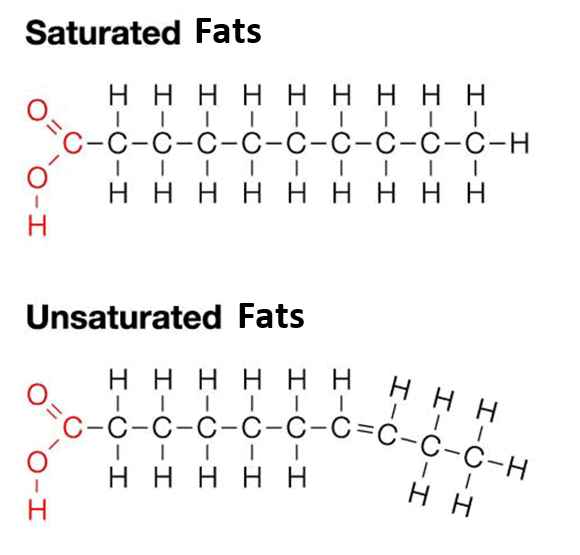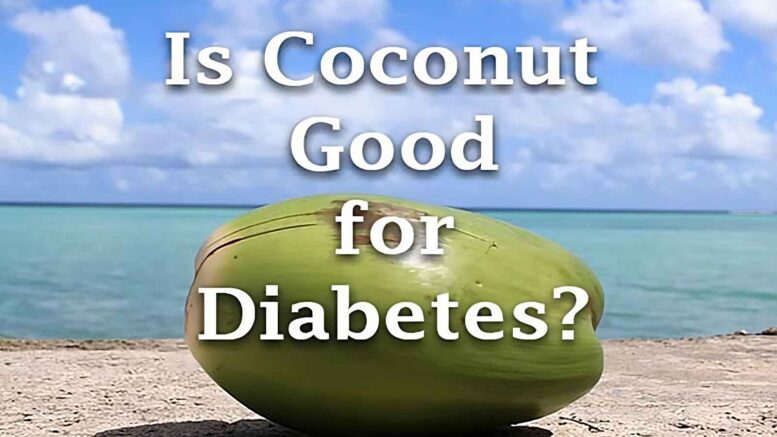With benefits for the heart and brain, weight loss (particularly of belly fat), and a plethora of other anti-inflammatory properties, coconut oil has been dubbed a “superfood.”
Is coconut oil a superfood, though? Or is it really the most recent online craze?
Coconuts
For many Asian and Pacific people, coconuts have long been the primary source of staple nutrition. For a very long time, those same populations have also utilized coconut as a medication to treat kidney stones, indigestion, constipation, diarrhea, infections, and respiratory issues.
The white flakes of coconut meat are rich in fiber, protein, minerals like iron, manganese, and selenium, as well as vitamins C and vitamins B and plant sterols. Coconut flesh has a significant fat content as well, with a high concentration of omega-6 fatty acids and mostly saturated fats. The finely ground coconut meat is called coconut flour.
In terms of nutrition, coconut milk (pressed from coconut meat) is comparable to coconut meat; it is richer in minerals including iron, calcium, magnesium, phosphorus, zinc, copper, manganese, and selenium, and it also contains vitamins C, E, and B. Plant sterols and calories from fat are also abundant in coconut milk.
These fats have a high concentration of omega-6 fatty acids and are also in the saturated form. Distilled coconut water has a significantly lower calorie count than coconut milk.
Lastly, coconut oil is virtually pure fat with very little in the way of vitamins, minerals, protein, or fiber. Instead, it contains a high concentration of calories from saturated fats and omega-6 fatty acids. Coconut oil contains medium-chain triacylglycerols, or MCTs, as its type of fat.
Health and Fats
For a long time, it was believed that dietary fats were the primary source of body fat. It turns out that this is an extremely basic perspective on this important nutritional area. Different types of fats exist, such as plant-based, animal, saturated, and unsaturated fats, in addition to fatty acids, lipids, and sterols. Not all fats are made equal.
Comparing Saturated and Unsaturated

Chains of carbon, hydrogen, and oxygen make up all fats. Either single bonds (C-C) or double bonds (C=C) can bind the carbon atoms in fat together. The degree of double vs single bonds is indicated by the phrase “saturated”; if a fat is considered saturated, all of its C-C bonds are single bonds.
Animal fats and tropical oils like coconut oil contain saturated fats, which are solids or thick at room temperature and have longer, unkinked chains (double bonds give the chain “kink”). Since lipids comprise a sizable component of membranes enclosing cells, for example, the degree of “kinking” might impact the features and attributes of the cell membrane. Cell membrane elasticity may increase as a result of the “kinking.”
Polyunsaturated fats include many double bonds, whereas monounsaturated fats only have one. Tree nuts, avocados, olive oil, and numerous nut oils are sources of monounsaturated fats. Omega-3 and omega-6 fatty acids, which are present in flax oil, fish oil, and most seed oils, are polyunsaturated fats.
Saturated fats are generally discouraged from being consumed by doctors and dietitians due to their link to issues with cell membranes and a higher risk of atherosclerosis, or hardening of the arteries. But, and this is crucial to note, animal fats, not plant fats, are generally linked to these consequences. For the longest period of human history, humans have consumed animal products, such as animal fat.
However, during this time, the meat came from wild game rather than from animals raised on corn or other non-grass diets. These animals also did not have very high fat content because they were active rather than kept in captivity.
Again, because they promote greater health and allow cell membranes to remain flexible, mono- or polyunsaturated fats are generally advised. Again, though, given that omega-3 fatty acids are linked to ANTI-inflammatory effects and omega-6 fatty acids to PRO-inflammatory effects, it seems that the proportion of polyunsaturated fats is crucial.
Although we frequently hear that we should consume more omega-3 fatty acids, this is NOT because omega-6 fatty acids are “bad” in some way; rather, it is simply because they are highly accessible and present in every plant that humans eat.
They are also not “bad” because they frequently encourage inflammation. Inflammation is a necessary component for our immune system to function. The issue is the ratio: too much omega-6 relative to too much omega-3 promotes inflammation; omega-3 is advised to enhance anti-inflammation.
It is thought that the ratio of omega-3 to omega-6 fats that early humans consumed was about 1:1. Some of us may consume up to 20 times as much omega-6 and omega-3 fatty acids now!
It’s always about striking a balance; too much of a good thing may often be detrimental. Take sugar into consideration if you have diabetes. Glucose, which is sugar, serves as our cells’ primary energy source. That’s a positive thing.
However, an excess of sugar can be harmful and induce inflammation. That just implies you need to balance your intake of sugar, not that you should never eat it. The situation with fats is basically the same. The key word here is balance!
Read Also: Exceptional Benefits of Whey Protein for Diabetes
What Advantages Do Coconut Products Offer, Particularly to Diabetes Patients?
Given that coconut products are high in fat, are there any advantages for diabetics using them? Ultimately, there exist communities in the South Pacific that obtain more than 60% of their energy from coconuts, and yet exhibit minimal signs of cardiovascular disease or diabetes.
Coconut Oil
Coconut oil has MCTs in it. A little degree of weight loss has been linked to them, however not very much. After four months, participants in a research using coconut oil dropped an average of seven pounds. Additionally, coconut oil may help lower bad cholesterol and raise good HDL cholesterol, both of which are beneficial for cholesterol levels.
Additionally, this study showed that coconut oil can aid in reducing belly fat, which is highly linked to a higher risk of heart disease. Additionally linked to a slower rate of Alzheimer’s disease progression is coconut oil.
Although the MCTs in coconut oil are directly absorbed by the intestines and travel straight to the liver, where they are used as an energy source by that organ, a recent review that focused exclusively on coconut oil and diabetes found that insufficient human research were available to make any recommendations.
However, MCTs have been shown to enhance insulin resistance and enhance the effects of insulin in rat experiments when diabetes is created.
Coconut Flour and Coconut Meat
High fiber content in coconut flesh and four can reduce the glycemic load and index of meals that use coconut meat or that are baked with coconut flour.
Coconut Water
The recommendation against coconut water for diabetics is based on the experience of one patient who drank one liter of coconut water every day for an extended period of time. Coconut water contains high levels of potassium that can cause high levels of potassium in the blood, a condition known as hyperkalemia.
Are There Any Conclusions?
Thus, there are a few reasons to include coconut in your diet. Although using coconut oil in baking and cooking has some solid evidence of delivering benefit, you have to take into account the high caloric value of coconut oil.
The high fiber and low glycemic load of coconut meat is a huge bonus. The current consensus regarding saturated fats derived from plants seems to be shifting a little bit—they don’t seem to be linked to a higher risk of heart disease and may even be protective against it.
Except for coconut flesh and flour’s reduced glycemic index, research on coconut and diabetes is still in its early stages. Right now, the best recommendation is to add coconut oil and flour or meat in moderation, two to three times each week, but monitor your calorie intake and see how well it works for you.
When using coconut oil, keep the following in mind:
- Make sure the coconut oil you buy is virgin (ideally organic); avoid purchasing any processed coconut oil. Trans fats, which are produced in large amounts by this processing and are undoubtedly unhealthy
- When using coconut oil in cooking, avoid using excessive heat as this may cause the oil to break down and lose its nutritional advantages.
For all the reasons mentioned above, coconut is a superfood that I heartily suggest trying.
Please share your experiences with high-coconut diets in the comments section below.
DiabetesCouncils Article | Reviewed by Dr. Christine Traxler MD on June 10, 2020
Citations
- http://scialert.net/abstract/?doi=ijbc.0000.76877.76877
- http://ajcn.nutrition.org/content/34/8/1552.short
- http://www.eatingwell.com/nutrition_health/nutrition_news_information/can_coconut_oil_help_you_lose_weight%20
- http://www.ncbi.nlm.nih.gov/pubmed/19437058
- 2.Medium-chain fatty acids: Functional lipids for the prevention and treatment ofthe metabolic syndrome, Koji Nagao, Teruyoshi Yanagita. Laboratory of Nutrition Biochemistry, Department of Applied Biochemistry and Food Science, Saga University, Honjo-1, Saga 840-8502, Japan, accessed 12 September 2014.
- http://www.eatingwell.com/nutrition_health/nutrition_news_information/health_benefits_of_coconut_coconut_oil_coconut_milk_coconut_water_coconut_flour?page=5
- http://onlinelibrary.wiley.com/doi/10.1002/pdi.2009/abstract;jsessionid=22F37660414590F7CC244F654D238A8D.f04t02?userIsAuthenticated=false&deniedAccessCustomisedMessage=
- http://www.nutrition411.com/articles/coconut-oil-great-debate/page/0/1


Be the first to comment on "Diabetes and coconuts, coconut milk and coconut oil"